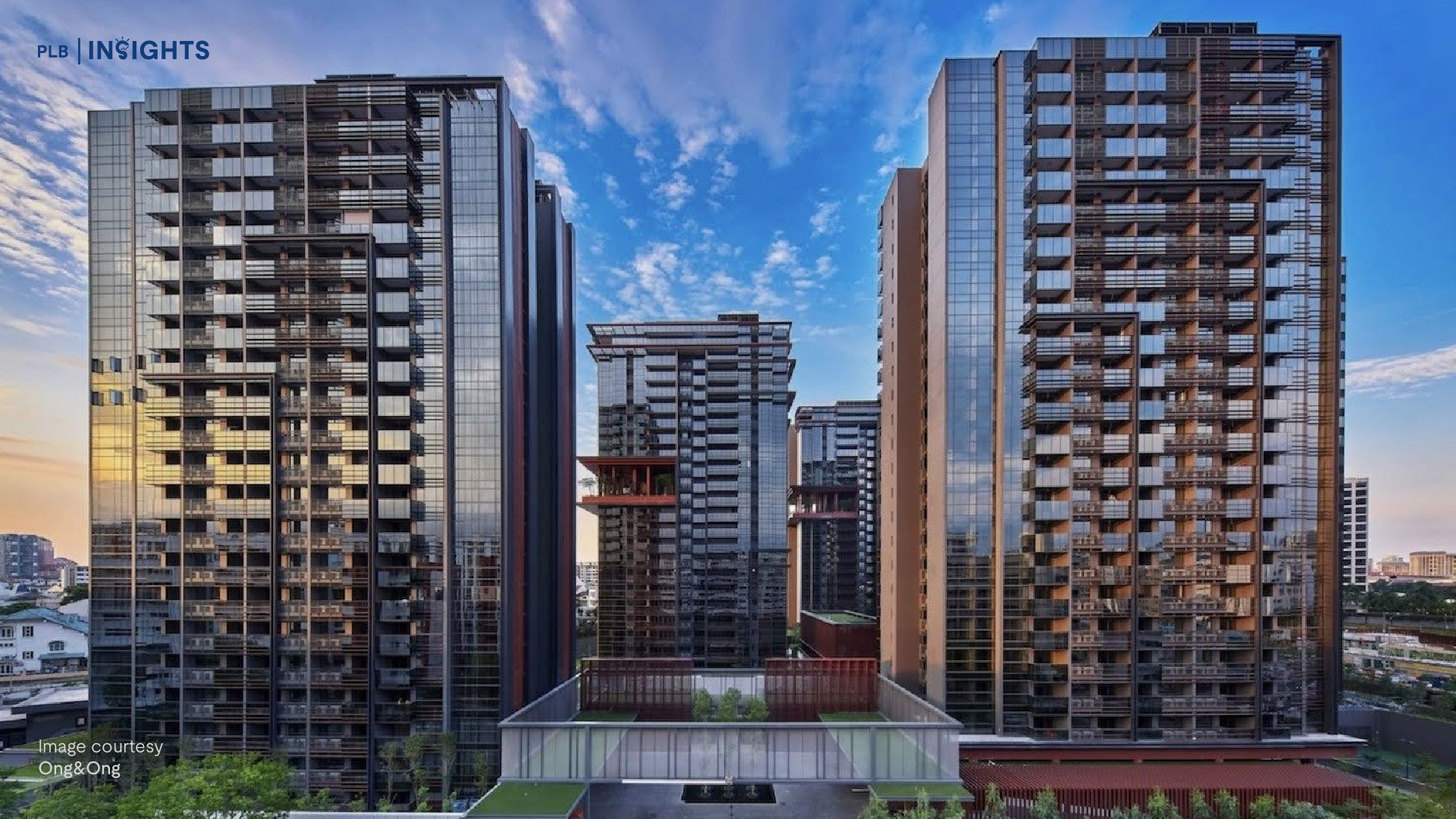
Leveraging the peak of soaring property prices, more private homeowners in Singapore opted to sell their properties within a shorter holding timeframe last year, aiming to capitalise on the lucrative profits. This trend emerged despite a significant drop in private property sales to a ten-year low in December 2023, amidst economic uncertainties and the introduction of new cooling measures.
Based on a Business Times article, the number of sales transactions for non-landed private properties held for five years or less increased dramatically to 2,507 units in 2023 from 681 units in 2019. This data encompasses sales for executive condominiums (EC) as well.
Considering cashing in on your property? This article offers practical tips to consider before making the decision, emphasising the risks involved in selling your property without a solid future plan.
Profits Soar as Property Prices Rise
Due to a notable surge in resale transactions for non-landed private properties, the median profit from selling these properties also saw a substantial rise, increasing by 33.5% to $247,000 in 2023. This marks a sharp contrast to the $185,000 figure recorded in 2022. The upward trend in median profit aligns with the steady increase in prices of private non-landed properties over the past five years, which witnessed a 32% rise from 2019 to 2023. Moreover, there was an overall increase in the proportion of private non-landed properties with holding periods of five years or less during this period, indicating homeowners’ eagerness to capitalise on the steep rise in property values to generate profits.

Key Considerations for Property Sellers
We consistently advise our clients that real estate represents an illiquid asset class, necessitating a substantial financial commitment. This lack of liquidity restricts flexibility for reallocating funds into other investment opportunities. Therefore, attempting to time the market in real estate transactions is often impractical. In this section, we outline essential considerations for those contemplating selling their property with the aim of making a profit.
1. Risk Of Being Priced Out
Singapore’s housing demand is expected to remain robust, with anticipated growth in the coming years. This expectation is supported by various factors bolstering the local real estate market. These include the implementation of cooling measures to stabilise prices and prevent excessive fluctuations, along with measures to avert housing bubbles within the constraints of limited space. Moreover, the projected population increase to 7 million by 2030 suggests a significant surge in housing demand within a short timeframe. With a high ownership rate of approximately 90% and robust government monetary policies, both citizens and non-citizens are drawn to Singapore’s real estate market for wealth preservation and appreciation. It’s important to note that continued high demand would lead to further property price escalation. Therefore, selling your property during a peak period to capitalise on profits without a solid plan for your next property poses the risk of being priced out of the market as prices continue to rise.

2. Financial Considerations in Property Transactions
While selling your property during a peak period might promise attractive profits, it’s crucial to consider the associated costs. These costs, including selling and buying expenses, could significantly diminish your anticipated profit. If your property still has an outstanding mortgage, you’ll need to settle the remaining amount upon sale. Conveyancing fees for transferring property ownership typically range from $2,500 to $3,000 for private properties. Agent commissions, typically 2-4% of the property value, also apply if you’ve engaged an agent. Additionally, preparing your property for sale may incur repair and renovation expenses. Furthermore, moving and renovating your new property can add substantially to your expenses. If your property’s holding period is under three years, you’ll be subject to Seller’s Stamp Duty (SSD) ranging from 4% to 12%. Moreover, Buyer’s Stamp Duty (BSD) for your next property, depending on its value, could be significant. Considering these costs is essential to accurately assess your potential profit from selling your property.

3. Optimising Sale and Purchase Timing
With the significant increase in Additional Buyer’s Stamp Duty (ABSD) rates – 20% for Singapore Citizens, 30% for Permanent Residents, and 60% for foreigners purchasing their second residential property in Singapore – timing your property sale and purchase becomes critical. To sidestep potential financial setbacks, meticulous planning is paramount. Rushing into a sale may result in underselling your property. It’s advisable to begin discussions with potential sellers of your next property concurrently with listing your current property for resale. Negotiating terms to avoid ABSD liabilities is crucial. Consulting with a seasoned real estate professional can streamline this process, ensuring optimal sale value, prudent property purchase, and precise timing throughout both transactions.

4. Long-Term Vision in Property Sale and Purchase
In addition to considering the potential financial gains from selling your property, it’s essential to evaluate how this sale fits into your long-term goals and family aspirations. Equally significant is ensuring that your next property aligns with your future lifestyle needs. When assessing potential properties, it’s crucial to examine various factors such as proximity to transportation hubs, amenities, and forthcoming developments in the area. Analysing the Urban Redevelopment Authority (URA) Master Plan can provide valuable insights into anticipated developments and the property’s potential for appreciation, while also helping you gauge its alignment with your lifestyle preferences. Furthermore, take into account whether the property is conveniently located near nature parks or preferred schools, particularly for families with school-going children. By considering these aspects, you can ensure that your next property not only meets your current needs but also contributes to enhancing your family’s overall quality of life in the future.

Insights and Guidelines for Your Next Property
In this section, we offer guidelines for your next property selection. These guidelines are formulated through our proprietary analytical tools and comprehensive research. They serve as helpful guidelines to aid you in choosing the most appropriate property, with future property exits in mind. This enhances the likelihood that your next chosen property will appeal to a broader audience if you decide to sell it in the future. It’s important to emphasise that these guidelines provide general insights and should not be construed as buy or sell recommendations. Our segmentation includes the Core Central Region (CCR), Rest of Central Region (RCR), and Outside Central Region (OCR).
Core Central Region


Rest of Central Region


Outside Central Region


As a practical guideline, focus on size categories with lower supply but higher demand. Considering factors such as the Total Debt Servicing Ratio (TDSR), Additional Buyer’s Stamp Duty (ABSD), and higher down payment requirements, it might be advantageous to consider larger-sized units. Recent housing policies restricting the acquisition of multiple properties have encouraged families to prioritise larger units, resulting in heightened demand for 3, 4, and 5-bedroom units over the last three years.
In Summary
In conclusion, navigating the real estate market, particularly when considering the sale of your property, demands careful consideration and strategic planning. While the allure of cashing out during a peak period may seem enticing, it’s essential to weigh the potential gains against the associated costs and risks. From understanding market dynamics to aligning your sale and purchase with long-term goals, this article has provided practical insights and guidelines to empower homeowners in making informed decisions. By considering factors such as market trends, stamp duties, and property size categories, homeowners can optimise their chances of maximising profits and securing a property that aligns with their future aspirations. Ultimately, a well-thought-out approach, coupled with expert guidance and thorough research, is key to navigating the complexities of the real estate market and achieving success in your property transactions.







